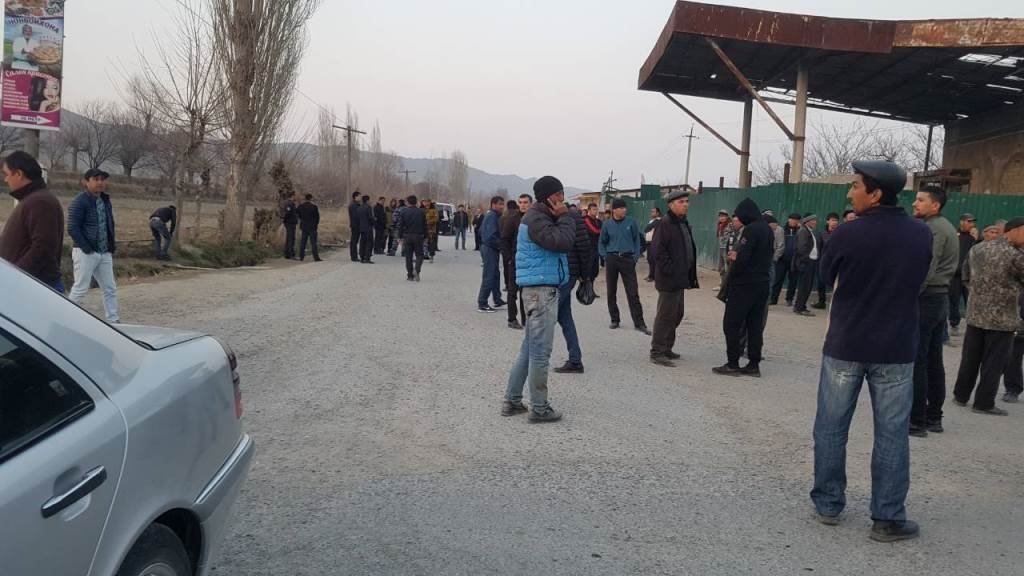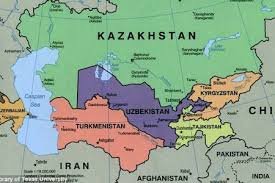 File photo: People gathered at the Isfara town of Chokuh municipality on the Tajik-Kyrgyz border where a Tajik teacher was killed and four others injured in the skirmish in 2018.
File photo: People gathered at the Isfara town of Chokuh municipality on the Tajik-Kyrgyz border where a Tajik teacher was killed and four others injured in the skirmish in 2018.
Border dynamics, natural resources, and mobility in Central Asia
Herald Report
The border issues in the Central Asian region are of key importance in political and economic integration and relationships. The border between the Central Asian Republics (CARs), carried out in the defunct Soviet period, in disregard of local cultural, ethnic and economic specificity, and sensitivity are boiling to skirmishes and at times violent clashes.
According to International Crisis Group (ICG) the most complicated border negotiations involve the Ferghana Valley where a myriad of enclaves exist, and all three countries which share it — Uzbekistan, Tajikistan, and Kyrgyzstan — have both historical claims to each other’s territory and economic interests in the transport routes, rivers, reservoirs, and industries. Negotiations over border demarcation in the valley have been charged with tension and have stalled over scores of disputed points. While talks continue with a broad understanding that border issues must be settled, there is little likelihood of a final breakthrough any time soon.
In this situation, it requires careful attention, both from officials and the scientific community of the region. “It is important that any territorial differences be resolved on a mutually acceptable basis in accordance with the standards of international law and practice,” the ICG suggests.
Research on the formation of national borders in the CARs is mainly focused on security-related issues. Important aspects affected by borders such as natural resource management, mobility, and new forms of cooperation remain on the periphery of such research.
Over the past four years, the Mountain Societies Research Institute has conducted comprehensive research in the Ferghana Valley, an area of high concentration of borders and of vital interests to several countries in the region. The developed research framework has been used to analyse the national discourses, socio-economic and political realities, and to deflect the predominant focus from a security perspective to a wider, more inclusive development perspective.
Various aspects with this research framework have been considered, the relevance of which are caused by the most acute socio-economic and political issues of the region. The results have formed the basis for a review on “Cross-border Dynamics and Natural Resources in the Ferghana Valley,” which will be presented at the conference. Contributions from regional experts will reflect and contextualise the findings from national and regional perspectives.
Participants will debate and contest dominant orthodoxies, and rethink the approaches to study the manifestation of borders as well as their impacts in Central Asia, and expand the understanding of cross-border issues beyond the scope of the security discourse.
The conference, according to the organisers, is designed to provide a platform for broad expert discussions focusing on the issues addressed in thematic panels: Natural resource management in the context of neighborhood practices transformation; and mobility, communications, and economic dynamics of border areas.
The conference is organised as part of the “Improving Stability and Better Natural Resource Management in Kyrgyzstan and Tajikistan” project.

